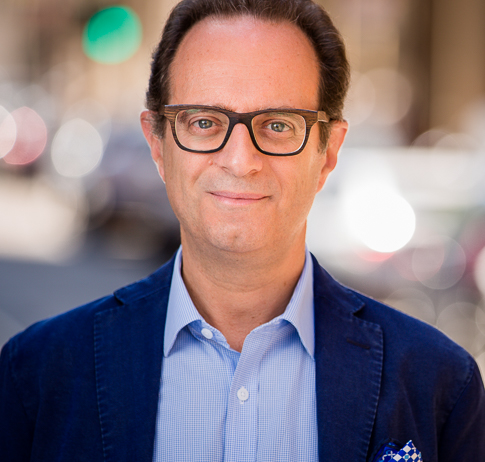#WomenWinning
When Iulia Necula was a young girl growing up in Romania in the early 1990s, like many other girls, she took up gymnastics to follow in the footsteps of gymnastics legend Nadia Comaneci. However, at eight years old, some coaches from the nearby Romanian Olympic Table Tennis Centre came to Iulia's school and identified her as a potential talent. 'What if I had been sick that day?' says Iulia, reflecting on how this event changed her life and set her on the path to playing professional table tennis, representing Romania in the Beijing 2008 Olympics and subsequently working for the International Table Tennis Federation.
In Romania, women's table tennis has traditionally been stronger than men's table tennis so there was no shortage of players to inspire Iulia, who says she has no 'one idol' but that she looked up to the 'older generation in table tennis and worked with world champions'. Now, in her work at the ITTF, Iulia is hoping to help create and showcase role models who can motivate the younger generation.
Iulia sees this as an important point in encouraging young players, and particularly women, to stay with the game and pursue it beyond the usual drop out stage at the end of formal education. The financial and time commitment of high level sport can be off-putting to anyone but Iulia notes that the 'mental attitude to the role of women in society and the roles that women undertake' is also a key factor in women not pursuing a professional career. Female role models can therefore play a huge part in both changing the attitudes of society and also giving more options and a clearer career path to women.
Table tennis is one of the biggest sports in terms of participation numbers with an estimated 300 million people playing. However, the professional women's side of the sport is much smaller. Iulia explains: 'the ITTF set an example as one of the few federations to pay the same prize money, but at club and regional level men win significantly more and there is more sponsorship for men.' Women's events at regional level can indeed be much smaller, Iulia adds, 'regional level events can be mixed, they try to combine it if there are not enough women'.
Women playing against men is not uncommon in table tennis, 'the beauty of table tennis is that everyone plays against everyone, men and women, older and younger. At professional level some say it is a different game and that men are more powerful, but this does not guarantee men would win'. Iulia adds that at the mixed events women sometimes do very well. It has been suggested that there is no great physiological advantage for any one gender in table tennis as power and topspin can be countered by the skill of the other player. Iulia is however cautiously optimistic about combining the sport 'men may be more advantaged, but it is worth a try'. Increasing female participation at grass roots level and maintaining this in the professional game may therefore see the differences in the male and female games reduce even further.
Iulia sees increasing the participation of women playing the sport as a key factor in another other important area – the governance of the sport. She estimates that whilst the governing body typically employs a lot of women in executive roles (the number of men and women in such roles is roughly even), there are only 10-15% of elected roles filled by women. This is something the ITTF are keen to address. 'We have development programs, scholarship and mentoring. We try to make women more aware of these roles and to engage with them'. However, Iulia is firm on quotas: 'I don't agree with appointment for gender and not qualifications. Some expect this, but it must be a meritocracy.' For Iulia, increasing the number of women at grass roots level will be the path to a better gender balance on the governing body committees. However, there is one key area where Iulia sees a difference: 'Regardless of the academic background, performances and achievements, women will always be first judged based on looks/appearances and will be victims of speculation on how they were selected or reached a certain position and role. This never happens in the case of men, and when this mentality will stop to exist, we will be a step closer to gender equality'.
The position in terms of sponsorship however seems to be improving. Iulia explains that whilst businesses will look at things from a commercial perspective and male sport typically has a higher media profile, sponsors are looking for potential role models to associate their brand within a particular region rather than any particular gender of athlete. 'Sometimes there are opportunities for women because they are women', Iulia comments, but she also senses change: 'In our modern society, sponsors are trying to support female athletes'. Iulia cites the breakthrough of 18 year old Adriana Díaz from Puerto Rico, whose success on the table is attracting more and more commercial opportunities. The future is indeed looking promising.
Please click here to view other articles and interviews in our Summer of sport: women winning campaign.


